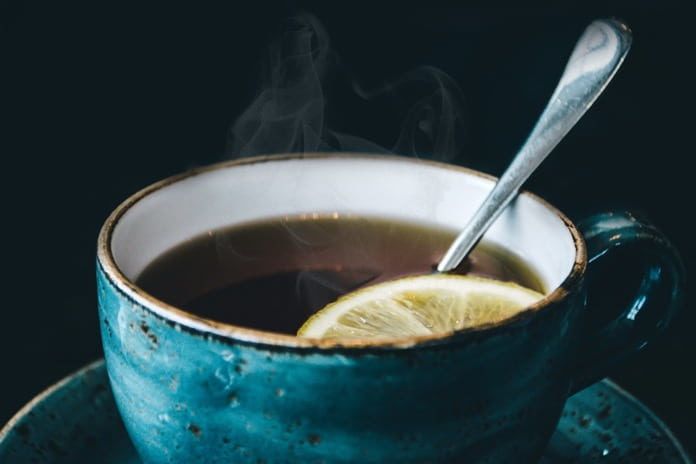A recent Chinese study investigated whether drinking very hot tea increases the risk of oesophageal cancer in addition to risk factors such as smoking and drinking alcohol.
Many people around the world appreciate a hot cup of tea. There are, however, concerns that drinking very hot tea may damage the cells lining our oesophagus, the tube that transports food and drinks to our stomach. Too much damage may contribute to the risk of developing oesophageal cancer. Although these concerns have been circulating for many years, they have not been confirmed. What we do know for certain is that smoking and consuming alcohol can cause oesophageal cancer and that the prevalence of this cancer is particularly high in men from Asian countries, such as China.
As discussed recently in The BMJ, a large Chinese prospective cohort study investigated whether regularly drinking very hot tea increased the risk of oesophageal cancer, particularly in combination with smoking and excessive alcohol consumption. The 456,155 participants, who were between the ages of 30-79 years, were asked how often they drank tea and at what temperature (warm, hot, very hot). They were also asked about their smoking status, and whether they drank 15g or more of alcohol on a daily basis. A standard serving of wine contains approximately 15g of alcohol.
Hot Tea May Increase the Risk of Cancer
During the nine-year follow-up period, 1,731 of the participants were diagnosed with oesophageal cancer. The participants who reported drinking very hot tea in combination with smoking and drinking excessive volumes of alcohol had an increased risk of oesophageal cancer compared to those who reported drinking very hot tea only. Oesophageal cancer risk increased five-fold in those who drank very hot tea and regularly consumed excessive volumes of alcohol compared to those who drank tea infrequently and less than 15g of alcohol each day. The risk of cancer was also two-fold higher for those who smoked and drank hot or very hot tea.
Hot Tea Exacerbated Risks from Smoking or Drinking Alcohol
The researchers noted that there was no increased risk of oesophageal cancer in participants who drank hot tea but did not smoke or drink alcohol. This indicates that drinking hot tea, while not a risk factor itself, exacerbates the cancer risk associated with smoking or drinking alcohol. It is possible that very hot tea damages the lining of the oesophagus, leaving it more vulnerable to damage caused by these smoking and alcohol.
Study Limitations
Although this was a large, rigorous study, the results may be biased because the participants self-reported their drinking and smoking habits. Another issue is that we have no way of knowing whether the participants’ drinking and smoking habits changed during the nine-year study period as this information was only collected at the beginning of the study,
Regardless of the limitations, this study has demonstrated that people who drink hot or very hot tea along with excessive volumes of alcohol and/or who smoke have a higher risk of developing oesophageal cancer than those who do not drink large volumes of alcohol and who do not smoke. Further investigations in other populations, particularly those with a higher prevalence of oesophageal cancer, are warranted.
Written by Natasha Tetlow, PhD
References:
(1) Wise, J. Drinking very hot tea linked to oesophageal cancer. BMJ. 2018;360:k543. doi: 10.1136/bmj.k543.
(2) Yu C, Tang H, Guo Y, et al. Effect of hot tea consumption and its interactions with alcohol and tobacco use on the risk of esophageal cancer: a population based cohort study. Ann Intern Med. 2018. doi:10.7326/M17-2000. Abstract only.
(3) Summaries for patients. Hot Tea Consumption and the Risk for Esophageal Cancer. Ann Intern Med. [published online 6 February 2018]. doi:10.7326/P17-9054



